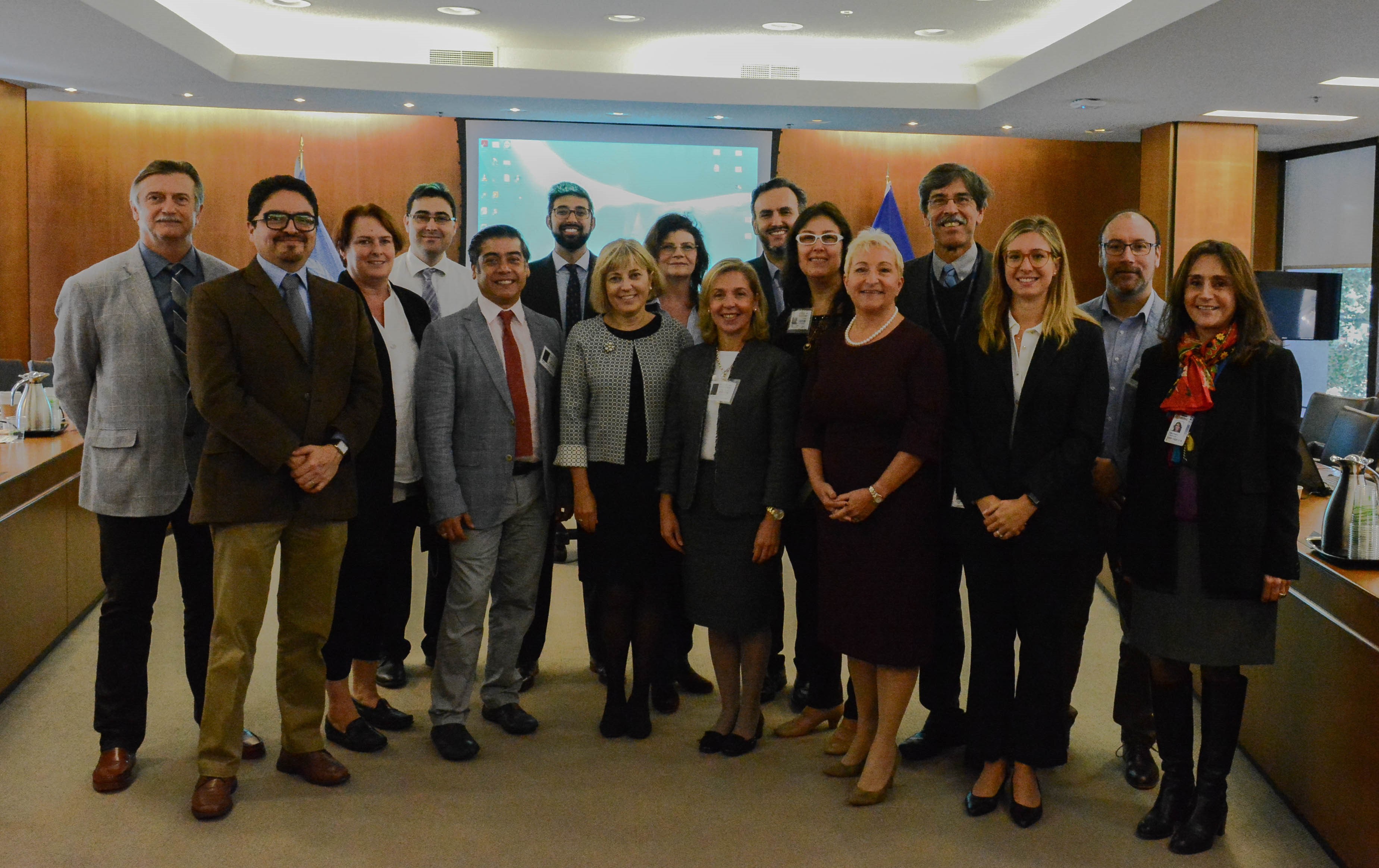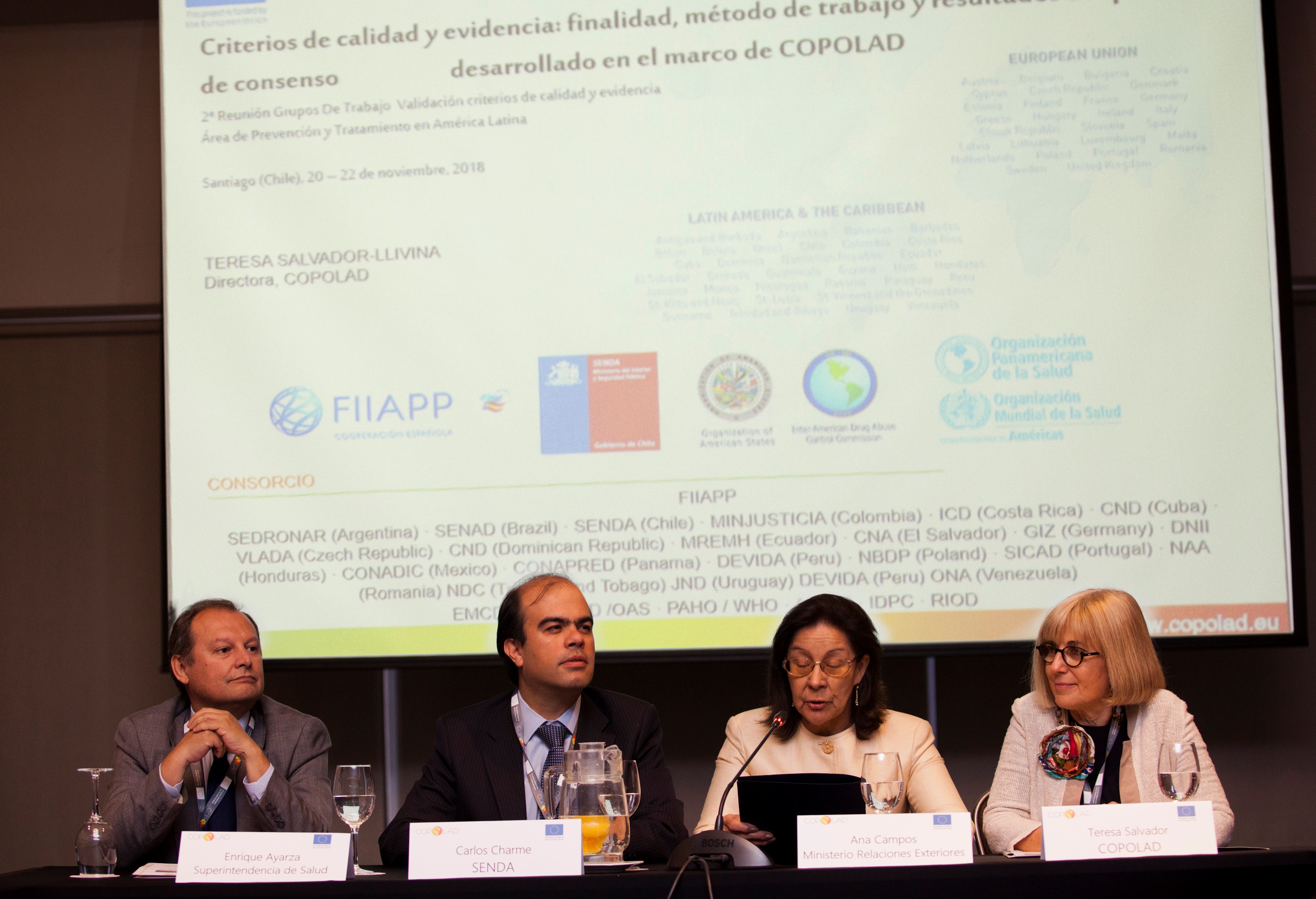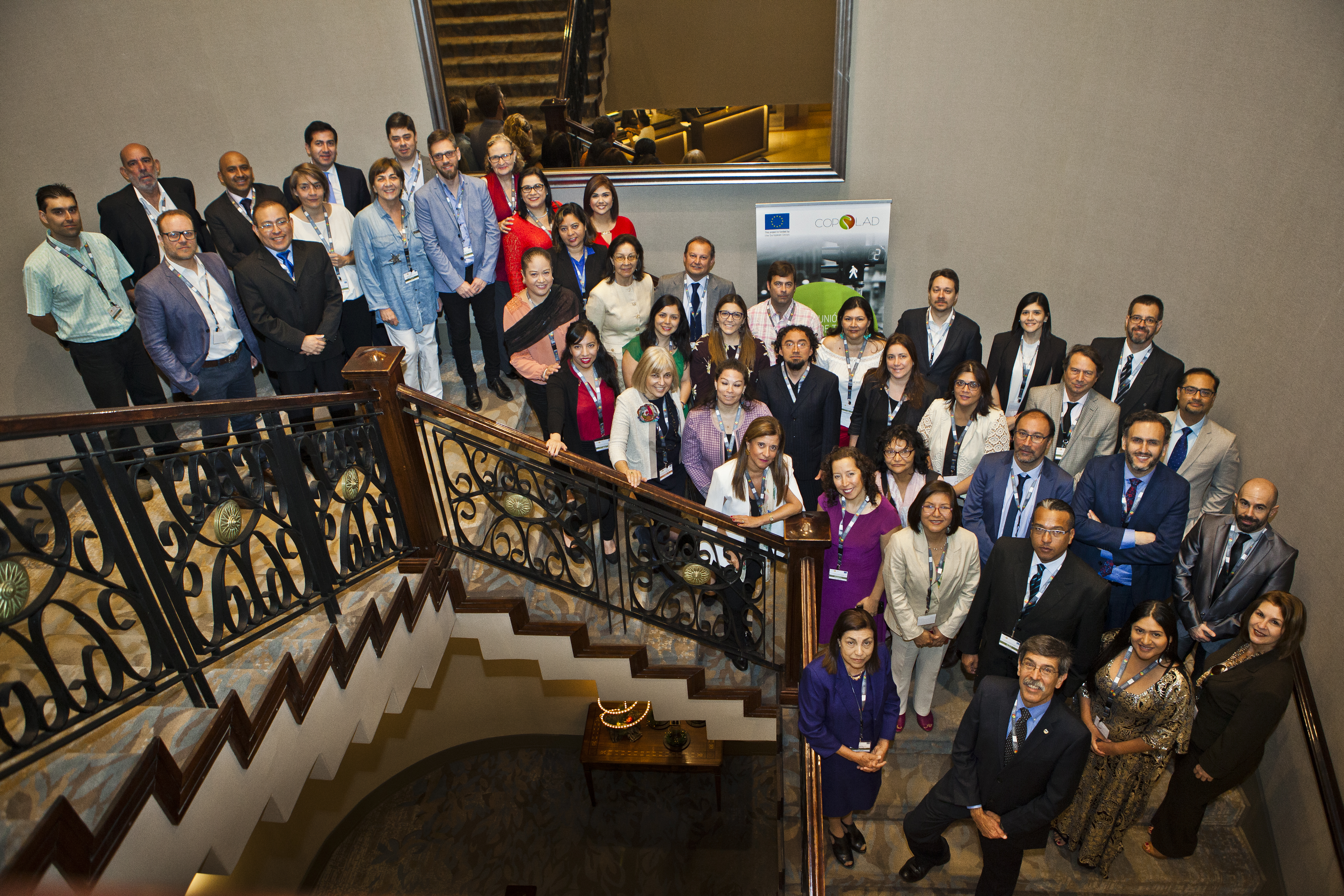Quality and Evidence-based Criteria system for DDR programmes
Availability of quality and evidence-based services for the prevention of drug-related problems, as well as adequate care services for problematic drug users, is one of the great challenges most CELAC countries have to face. This objective requires the development of strategies to additionally ensure the universal coverage of services, as well as the availability of adequate national accreditation frameworks, as part of public policy based on the principles of public health, human rights, gender approach, and cultural sensitivity.
Two relevant projects are currently being carried out in the Americas in the field of quality criteria and evidence in the field: the International Standards for the Treatment of Drug Use Disorders, jointly developed by the United Nations Office on Drugs and Crime (UNODC) and the Pan American Health Organization (PAHO/WHO), and the Project on Quality and evidence-based criteria in the implementation of programs to reduce the demand for drugs, developed within the framework of COPOLAD, which has the support of the Inter-American Drug Abuse Control Commission (CICAD/OAS) and PAHO/WHO, as multilateral collaborating agencies.
During the last months of 2018, notable agreements have been reached, from both projects, to joint efforts in supporting the implementation of national systems for quality assurance in Latin American and the Caribbean countries. These developments will continue thanks to the collaborative work between all the institutions involved.
To explore the best possible ways to strengthen this coordination, in October an Interagency meeting on standards of care for problematic drug users in the Americas was held at PAHO headquarters in Washington DC (USA). The meeting brought together, in an unprecedented effort in the region all stakeholders: COPOLAD, PAHO/WHO, CICAD/OAS, UNODC, as well as the US. Department of State Bureau of International Narcotics and Law Enforcement Affairs (INL). This meeting facilitated the definition of new synergies for the implementation of quality standards, as well as a brief exchange of information on other relevant developments in this field, identifying the need to deepen the future coordination of all prevention, treatment, harm reduction and social integration actions delivered in the Americas.
Following the validation of the criteria, carried out by COPOLAD, the 2nd Meeting for the validation of basic and advanced quality and evidence-based criteria for treatment and prevention programmes took place from November 20 to 22 in Santiago, Chile. This activity, led by Chile through the National Service for the Prevention and Rehabilitation of Drug and Alcohol Consumption (SENDA), facilitated the assessment of the on-going process in the participating countries and the challenges faced in each one. The meeting also provided an excellent opportunity to explore the following steps for including the standards within the regulatory framework in each country. Fifteen Latin American countries participated in this meeting, presenting 34 validated programs (Argentina, Chile, Colombia, Costa Rica, Cuba, Ecuador, El Salvador, Guatemala, Honduras, Mexico, Panama, Paraguay, Peru, Uruguay and Venezuela). It was also attended by CICAD, PAHO, RIOD and the Colombo Plan (INL) for Latin America. The civil society was also represented by three foundations , members of the RIOD: Paréntesis (Chile), Aylen (Argentina), and Casa Abierta (Dominican Republic). Three Chilean centres also presented their experiences of how the services and programmes perceive the improvement process of evaluation and the excellent results that this validation process has given to them. All countries expressed how important and positive has been for them the establishment of stable coordination processes between National Drug Commissions, Ministries of Health and national agencies in charge of accreditation (according to the different realities); this cooperation is facilitating progress in defining the normative and / or legal process required in each case.
In the framework of this activity, the Minister of Health of Chile, Dr. Emilio Santelices, and the Director of SENDA -whose full declarations can be found at the interview's section in this issue- received the Director of COPOLAD, confirming the excellent collaboration between Chile and COPOLAD since its first phase, and in order to study the presence of Chilean experts and the role of the authorities in this country over the coming months, in the framework of the programme.
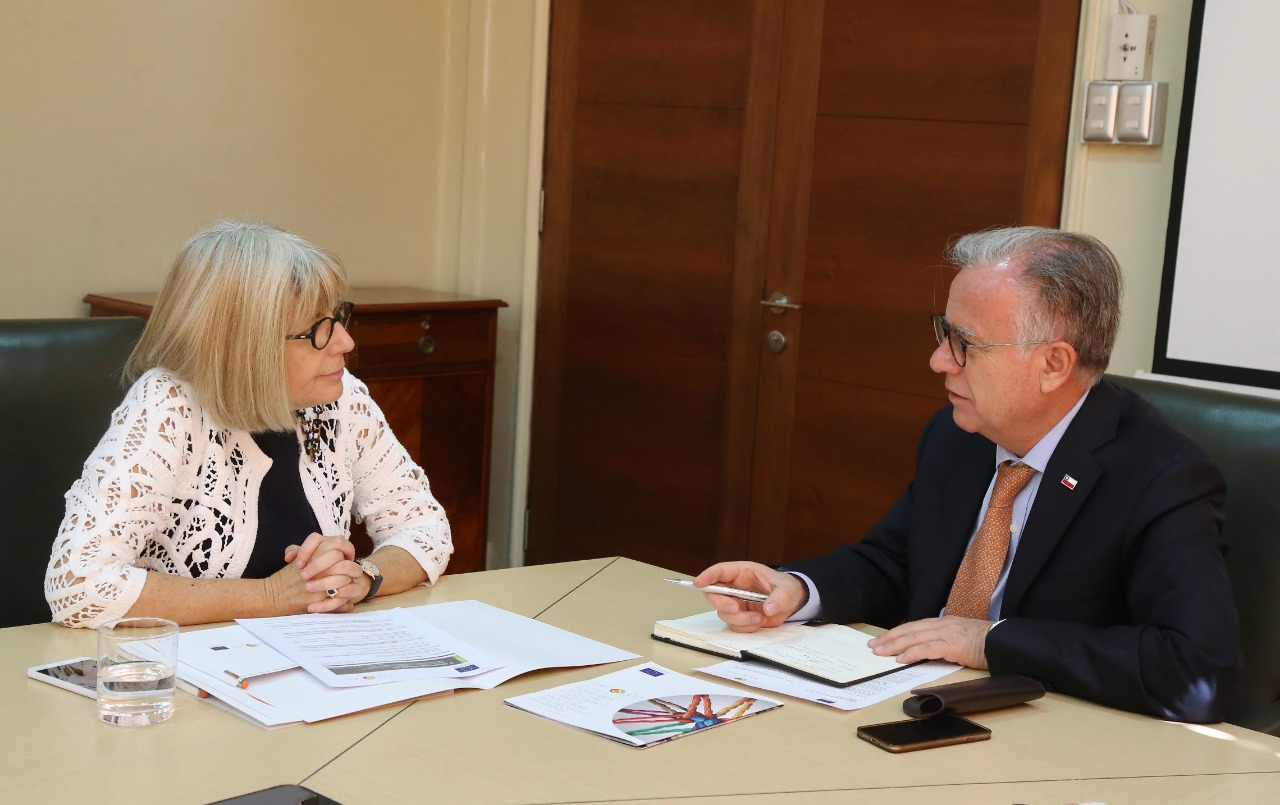
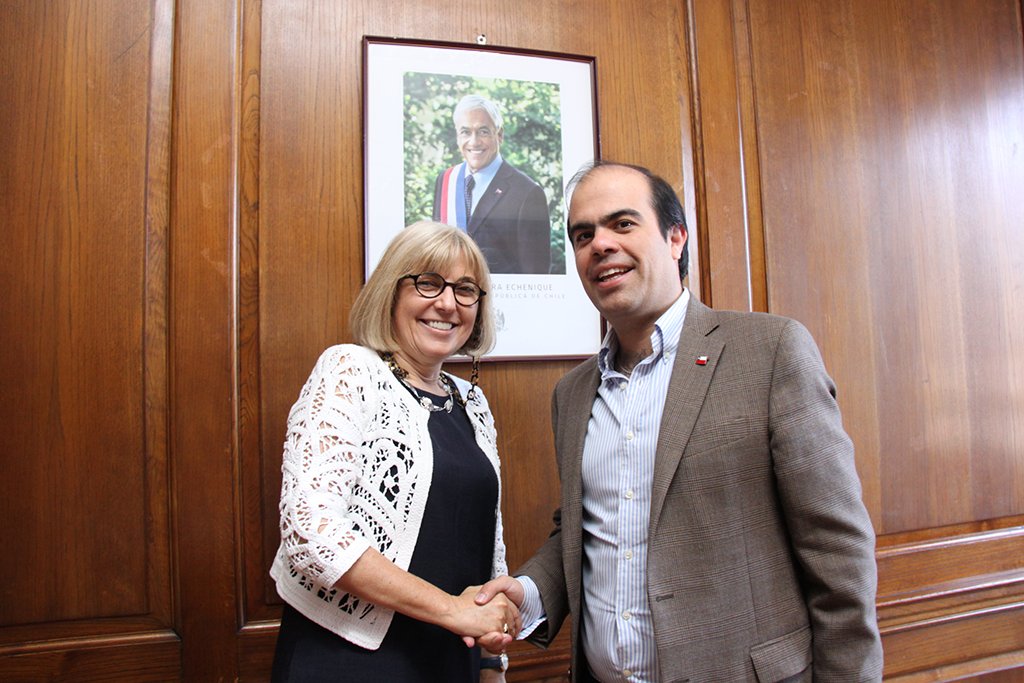
As a result of both meetings, a document of recommendations, agreements and strategies for the implementation of national systems of quality assurance is being developed by all stakeholders. The following steps include finalizing the process by the Latin American countries still working on the validation.
Among the most important future developments it is important to highlight how the process is also progressing in the Caribbean countries. Having joined this project during the second phase of COPOLAD, the Caribbean countries are making excellent progress, also based on the schedule that the countries themselves proposed. Thus, they have already completed the validation exercise: Bahamas, Guyana, Trinidad and Tobago and Saint Lucia. For its part, Dominica and Antigua and Barbuda and Jamaica are working very positively to be able to complete the planned work.
COPOLAD Online courses
Attending vulnerability: a new COPOLAD course, ready to be launched in Latin America and the Caribbean
During 2018, COPOLAD has been developing a new course to increase the scope of its virtual training: "Comprehensive approach to the prevention and reduction of adverse consequences of drug use in highly vulnerable populations: a public health strategy". It presents the theoretical basis and the existing evidence on interventions aimed at mitigating the adverse consequences of drug consumption. It emphasises support measures on population groups exposed to conditions generating greater vulnerability from a health and social point of view. PAHO/WHO and the Federal University of Juiz de Fora (Brazil) have collaborated in the development of the course contents.

Three international editions of online training in 2019
COPOLAD continues to strengthen its training of trainers strategy in Latin America and the Caribbean. In December 2018, COPOLAD launched two online courses for the Caribbean countries, led by the National Council on Drug Abuse (NCDA) of Jamaica, that will be starting in March 2019. The third 2019 international edition will be led by the Secretariat of Comprehensive Policies on Drugs of the Argentine Nation (SEDRONAR) and addressed to Latin American countries, starting in April 2019. The selection process for awarding the scholarships has begun extending invitations to all the National Drug Agencies of the 33 countries of the Region so that each Agency can select professionals with responsibilities in planning, decision-making and management of services.
In parallel, COPOLAD continues to offer CELAC countries the possibility of implementing online courses at the national level. Read more.


